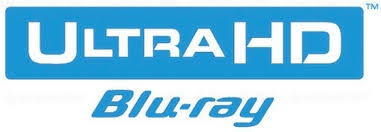
The Blu-ray Disc Association (BDA) has completed an Ultra HD Blu-ray technical specification that will lead to the release of players and discs that support the new format. It will be begin licensing the format starting Aug. 24. However, don’t expect any support from Apple.
Ultra HD Blu-Ray consumer products should begin to arrive later this year. The format supports Ultra HD 4K TV resolution (3840×2160) and enables high dynamic range (HDR), high frame rates and object-based immersive sound. It’s not clear how much demand there will be for the new format, the BDA, citing data from the IHS research group expects Ultra HD TV-owning households will grow from 11.7 million last year to 95.6 million by 2019.
The Ultra HD Blu-ray format will deliver high dynamic range content that significantly expands the range between the brightest and darkest elements and gives the consumer a more life-like viewing experience, according to Victor Matsuda, chair, BDA Promotions Committee. Additionally, the format provides expanded color range, high frame rate (up to 60fps) and up-to 3840×2160 resolution.
The Ultra HD Blu-ray format will also deliver next-generation immersive, object-based sound formats. And, with the optional “digital bridge” feature, the specification enhances the value of content ownership by embracing the notion that a content purchase can enable the consumer to view their content across a wide range of in-home and mobile devices, says Matsuda.
Apple was once part of the Blu-Ray Association, but never offered Mac support for Blu-ray discs. The late Steve Jobs said “Blu-ray was a bag of hurt.” It’s unlikely that the company has changed its mind as it wants you to rent and buy all your media at the iTunes Store.
However, no ultra HD or 4K movies are available at the store. When Apple’s next-generation Apple TV arrives later this year, it will lack 4K video capability, claims BuzzFeed. I think that’s incorrect. But, if so, that would be a mistake on Apple’s part if it wants to be ahead of the curve.
4K content on iTunes seems like a natural move. After all, the iMac with 5K Retina practically screams for such content. The MacBook Pro line comes, with one exception, with Retina displays. iPhones and iPads have Retina displays. The 12-inch MacBook has a Retina display. And an Apple Thunderbolt 5K Retina Display is a near-certainty.
So let’s hope Apple gets behind the 4K movement, even though it will almost certainly pass on Ultra HD Blu-ray.
